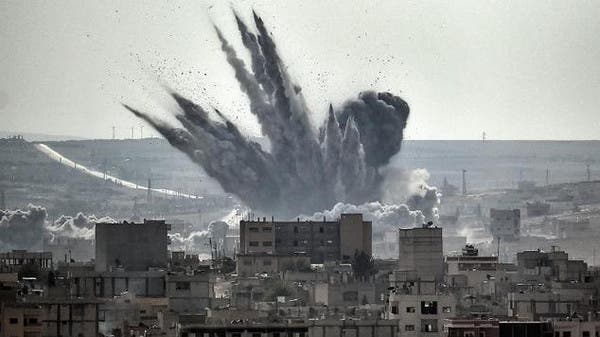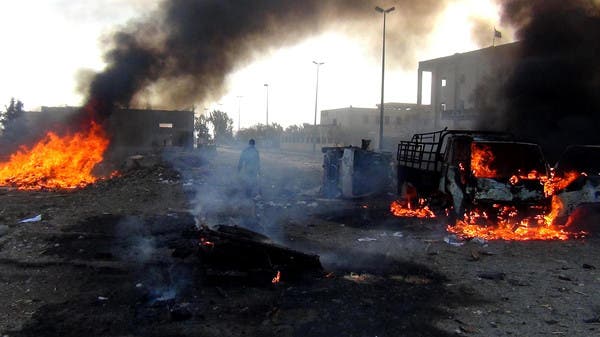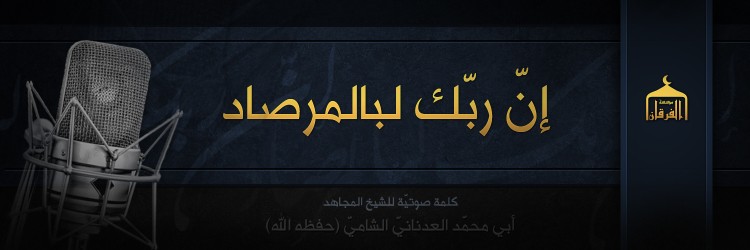What the Media Gets Wrong About Israel

During the Gaza war this summer, it became clear that one of the most important aspects of the media-saturated conflict between Jews and Arabs is also the least covered: the press itself. The Western press has become less an observer of this conflict than an actor in it, a role with consequences for the millions of people trying to comprehend current events, including policymakers who depend on journalistic accounts to understand a region where they consistently seek, and fail, to productively intervene.
An essay I wrote for Tablet on this topic in the aftermath of the war sparked intense interest. In the article, based on my experiences between 2006 and 2011 as a reporter and editor in the Jerusalem bureau of the Associated Press, one of the world’s largest news organizations, I pointed out the existence of a problem and discussed it in broad terms. Using staffing numbers, I illustrated the disproportionate media attention devoted to this conflict relative to other stories, and gave examples of editorial decisions that appeared to be driven by ideological considerations rather than journalistic ones. I suggested that the cumulative effect has been to create a grossly oversimplified story—a kind of modern morality play in which the Jews of Israel are displayed more than any other people on earth as examples of moral failure. This is a thought pattern with deep roots in Western civilization.
But how precisely does this thought pattern manifest itself in the day-to-day functioning, or malfunctioning, of the press corps? To answer this question, I want to explore the way Western press coverage is shaped by unique circumstances here in Israel and also by flaws affecting the media beyond the confines of this conflict. In doing so, I will draw on my own experiences and those of colleagues. These are obviously limited and yet, I believe, representative.
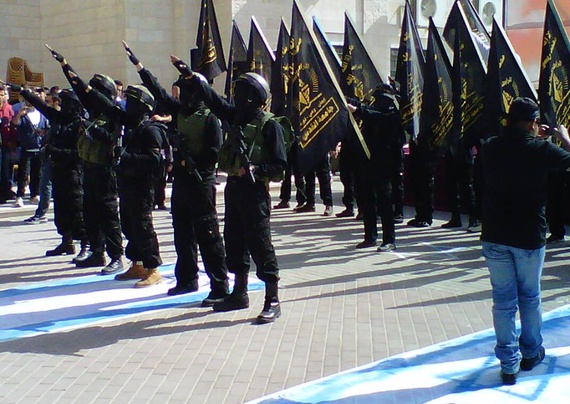
I am not using this photograph to make the case that Palestinians are Nazis. Palestinians are not Nazis. They are, like Israelis, human beings dealing with a difficult present and past in ways that are occasionally ugly. I cite it now for a different reason.
Such an event at an institution like Al-Quds University, headed at the time by a well-known moderate professor, and with ties to sister institutions in America, indicates something about the winds now blowing in Palestinian society and across the Arab world. The rally is interesting for the visual connection it makes between radical Islam here and elsewhere in the region; a picture like this could help explain why many perfectly rational Israelis fear withdrawing their military from East Jerusalem or the West Bank, even if they loathe the occupation and wish to live in peace with their Palestinian neighbors. The images from the demonstration were, as photo editors like to say, “strong.” The rally had, in other words, all the necessary elements of a powerful news story.
The event took place a short drive from the homes and offices of the hundreds of international journalists who are based in Jerusalem. Journalists were aware of it: The sizable Jerusalem bureau of the Associated Press, for example, which can produce several stories on an average day, was in possession of photos of the event, including the one above, a day later. (The photographs were taken by someone I know who was on campus that day, and I sent them to the bureau myself.) Jerusalem editors decided that the images, and the rally, were not newsworthy, and the demonstration was only mentioned by the AP weeks later when the organization’s Boston bureau reported that Brandeis University had cut ties with Al-Quds over the incident. On the day that the AP decided to ignore the rally, November 6, 2013, the same bureau published a report about a pledge from the U.S. State Department to provide a minor funding increase for the Palestinian Authority; that was newsworthy. This is standard. To offer another illustration, the construction of 100 apartments in a Jewish settlement is always news; the smuggling of 100 rockets into Gaza by Hamas is, with rare exceptions, not news at all.
I mention these instances to demonstrate the kind of decisions made regularly in the bureaus of the foreign press covering Israel and the Palestinian territories, and to show the way in which the pipeline of information from this place is not just rusty and leaking, which is the usual state of affairs in the media, but intentionally plugged.
There are banal explanations for problems with coverage—reporters are in a hurry, editors are overloaded and distracted. These are realities, and can explain small errors and mishaps like ill-conceived headlines, which is why such details don’t typically strike me as important or worth much analysis. Some say inflations and omissions are the inevitable results of an honest attempt to cover events in a challenging and occasionally dangerous reporting environment, which is what I initially believed myself. A few years on the job changed my mind. Such excuses can’t explain why the same inflations and omissions recur again and again, why they are common to so many news outlets, and why the simple “Israel story” of the international media is so foreign to people aware of the historical and regional context of events in this place. The explanation lies elsewhere.
The best insight into one of the key phenomena at play here comes not from a local reporter but from the journalist and author Philip Gourevitch. In Rwanda and elsewhere in Africa, Gourevitch wrote in 2010, he was struck by the ethical gray zone of ties between reporters and NGOs. “Too often the press represents humanitarians with unquestioning admiration,” he observed in The New Yorker. “Why not seek to keep them honest? Why should our coverage of them look so much like their own self-representation in fund-raising appeals? Why should we (as many photojournalists and print reporters do) work for humanitarian agencies between journalism jobs, helping them with their official reports and institutional appeals, in a way that we would never consider doing for corporations, political parties, or government agencies?”
This confusion is very much present in Israel and the Palestinian territories, where foreign activists are a notable feature of the landscape, and where international NGOs and numerous arms of the United Nations are among the most powerful players, wielding billions of dollars and employing many thousands of foreign and local employees. Their SUVs dominate sections of East Jerusalem and their expense accounts keep Ramallah afloat. They provide reporters with social circles, romantic partners, and alternative employment—a fact that is more important to reporters now than it has ever been, given the disintegration of many newspapers and the shoestring nature of their Internet successors.
In my time in the press corps, I learned that our relationship with these groups was not journalistic. My colleagues and I did not, that is, seek to analyze or criticize them. For many foreign journalists, these were not targets but sources and friends—fellow members, in a sense, of an informal alliance. This alliance consists of activists and international staffers from the UN and the NGOs; the Western diplomatic corps, particularly in East Jerusalem; and foreign reporters. (There is also a local component, consisting of a small number of Israeli human-rights activists who are themselves largely funded by European governments, and Palestinian staffers from the Palestinian Authority, the NGOs, and the UN.) Mingling occurs at places like the lovely Oriental courtyard of the American Colony hotel in East Jerusalem, or at parties held at the British Consulate’s rooftop pool. The dominant characteristic of nearly all of these people is their transience. They arrive from somewhere, spend a while living in a peculiar subculture of expatriates, and then move on.
In these circles, in my experience, a distaste for Israel has come to be something between an acceptable prejudice and a prerequisite for entry. I don’t mean a critical approach to Israeli policies or to the ham-fisted government currently in charge in this country, but a belief that to some extent the Jews of Israel are a symbol of the world’s ills, particularly those connected to nationalism, militarism, colonialism, and racism—an idea quickly becoming one of the central elements of the “progressive” Western zeitgeist, spreading from the European left to American college campuses and intellectuals, including journalists. In this social group, this sentiment is translated into editorial decisions made by individual reporters and editors covering Israel, and this, in turn, gives such thinking the means of mass self-replication.
Many freshly arrived reporters in Israel, similarly adrift in a new country, undergo a rapid socialization in the circles I mentioned. This provides them not only with sources and friendships but with a ready-made framework for their reporting—the tools to distill and warp complex events into a simple narrative in which there is a bad guy who doesn’t want peace and a good guy who does. This is the “Israel story,” and it has the advantage of being an easy story to report. Everyone here answers their cell phone, and everyone knows what to say. You can put your kids in good schools and dine at good restaurants. It’s fine if you’re gay. Your chances of being beheaded on YouTube are slim. Nearly all of the information you need—that is, in most cases, information critical of Israel—is not only easily accessible but has already been reported for you by Israeli journalists or compiled by NGOs. You can claim to be speaking truth to power, having selected the only “power” in the area that poses no threat to your safety.
Many foreign journalists have come to see themselves as part of this world of international organizations, and specifically as the media arm of this world. They have decided not just to describe and explain, which is hard enough, and important enough, but to “help.” And that’s where reporters get into trouble, because “helping” is always a murky, subjective, and political enterprise, made more difficult if you are unfamiliar with the relevant languages and history.
Confusion over the role of the press explains one of the strangest aspects of coverage here—namely, that while international organizations are among the most powerful actors in the Israel story, they are almost never reported on. Are they bloated, ineffective, or corrupt? Are they helping, or hurting? We don’t know, because these groups are to be quoted, not covered. Journalists cross from places like the BBC to organizations like Oxfam and back. The current spokesman at the UN agency for Palestinian refugees in Gaza, for example, is a former BBC man. A Palestinian woman who participated in protests against Israel and tweeted furiously about Israel a few years ago served at the same time as a spokesperson for a UN office, and was close friends with a few reporters I know. And so forth.
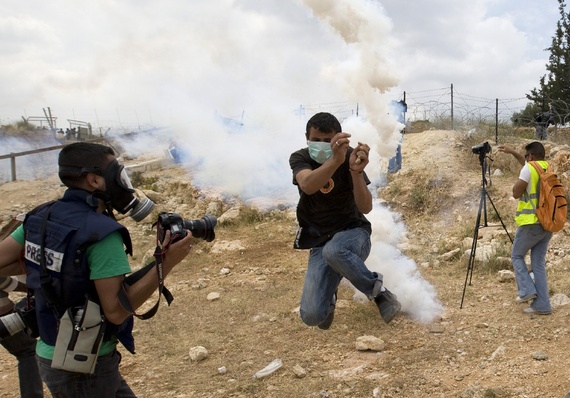
As usual, Orwell got there first. Here is his description from 1946 of writers of communist and “fellow-traveler” journalism: “The argument that to tell the truth would be ‘inopportune’ or would ‘play into the hands of’ somebody or other is felt to be unanswerable, and few people are bothered by the prospect that the lies which they condone will get out of the newspapers and into the history books.” The stories I mentioned would be “inopportune” for the Palestinians, and would “play into the hands” of the Israelis. And so, in the judgment of the press corps, they generally aren’t news.
In the aftermath of the three-week Gaza war of 2008-2009, not yet quite understanding the way things work, I spent a week or so writing a story about NGOs like Human Rights Watch, whose work on Israel had just been subject to an unusual public lashing in The New York Times by its own founder, Robert Bernstein. (The Middle East, he wrote, “is populated by authoritarian regimes with appalling human rights records. Yet in recent years Human Rights Watch has written far more condemnations of Israel for violations of international law than of any other country in the region.”) My article was gentle, all things considered, beginning like this:
JERUSALEM (AP) _ The prickly relationship between Israel and its critics in human rights organizations has escalated into an unprecedented war of words as the fallout from Israel’s Gaza offensive persists ten months after the fighting ended.Editors killed the story.
Around this time, a Jerusalem-based group called NGO Monitor was battling the international organizations condemning Israel after the Gaza conflict, and though the group was very much a pro-Israel outfit and by no means an objective observer, it could have offered some partisan counterpoint in our articles to charges by NGOs that Israel had committed “war crimes.” But the bureau’s explicit orders to reporters were to never quote the group or its director, an American-born professor named Gerald Steinberg. In my time as an AP writer moving through the local conflict, with its myriad lunatics, bigots, and killers, the only person I ever saw subjected to an interview ban was this professor.
When the UN released its controversial Goldstone report on the Gaza fighting, we at the bureau trumpeted its findings in dozens of articles, though there was discussion even at the time of the report’s failure to prove its central charge: that Israel had killed civilians on purpose. (The director of Israel’s premier human-rights group, B’Tselem, who was critical of the Israeli operation, told me at the time that this claim was “a reach given the facts,” an evaluation that was eventually seconded by the report’s author. “If I had known then what I know now, the Goldstone Report would have been a different document,” Richard Goldstone wrote in The Washington Post in April 2011.) We understood that our job was not to look critically at the UN report, or any such document, but to publicize it.
Decisions like these are hard to fathom if you believe the foreign press corps’ role is to explain a complicated story to people far away. But they make sense if you understand that journalists covering Israel and the Palestinian territories often don’t see their role that way. The radio and print journalist Mark Lavie, who has reported from the region since 1972, was a colleague of mine at the AP, where he was an editor in the Jerusalem bureau and then in Cairo until his retirement last year. (It was Lavie who first learned of the Israeli peace offer of late 2008, and was ordered by his superiors to ignore the story.) An Indiana-born Israeli of moderate politics, he had a long run in journalism that included several wars and the first Palestinian intifada, and found little reason to complain about the functioning of the media.
But things changed in earnest in 2000, with the collapse of peace efforts and the outbreak of the Second Intifada. Israel accepted President Bill Clinton’s peace framework that fall and the Palestinians rejected it, as Clinton made clear. Nevertheless, Lavie recently told me, the bureau’s editorial line was still that the conflict was Israel’s fault, and the Palestinians and the Arab world were blameless. By the end of Lavie’s career, he was editing Israel copy on the AP’s Middle East regional desk in Cairo, trying to restore balance and context to stories he thought had little connection to reality. In his words, he had gone from seeing himself as a proud member of the international press corps to “the Jew-boy with his finger in the dike.” He wrote a book, Broken Spring, about his front-row view of the Middle East’s descent into chaos, and retired disillusioned and angry.
I have tended to see the specific failings that we both encountered at the AP as symptoms of a general thought pattern in the press, but Lavie takes a more forceful position, viewing the influential American news organization as one of the primary authors of this thought pattern. (In a statement, AP spokesman Paul Colford dismissed my criticism as “distortions, half-truths and inaccuracies,” and denied that AP coverage is biased against Israel.) This is not just because many thousands of media outlets use AP material directly, but also because when journalists arrive in their offices in the morning, the first thing many of them do is check the AP wire (or, these days, scroll through it in their Twitter feed). The AP is like Ringo Starr, thumping away at the back of the stage: there might be flashier performers in front, and you might not always notice him, but when Ringo’s off, everyone’s off.
Lavie believes that in the last years of his career, the AP’s Israel operation drifted from its traditional role of careful explanation toward a kind of political activism that both contributed to and fed off growing hostility to Israel worldwide. “The AP is extremely important, and when the AP turned, it turned a lot of the world with it,” Lavie said. “That’s when it became harder for any professional journalist to work here, Jewish or not. I reject the idea that my dissatisfaction had to do with being Jewish or Israeli. It had to do with being a journalist.”
Journalistic hallucinations, in other words, have a precedent. They tend to occur, as in the case of the Great China Hoax, when reporters are not granted the freedom to write what they see but are rather expected to maintain a “story” that follows predictable lines. For the international press, the uglier characteristics of Palestinian politics and society are mostly untouchable because they would disrupt the Israel story, which is a story of Jewish moral failure.
Most consumers of the Israel story don’t understand how the story is manufactured. But Hamas does. Since assuming power in Gaza in 2007, the Islamic Resistance Movement has come to understand that many reporters are committed to a narrative wherein Israelis are oppressors and Palestinians passive victims with reasonable goals, and are uninterested in contradictory information. Recognizing this, certain Hamas spokesmen have taken to confiding to Western journalists, including some I know personally, that the group is in fact a secretly pragmatic outfit with bellicose rhetoric, and journalists—eager to believe the confession, and sometimes unwilling to credit locals with the smarts necessary to deceive them—have taken it as a scoop instead of as spin.
During my time at the AP, we helped Hamas get this point across with a school of reporting that might be classified as “Surprising Signs of Moderation” (a direct precursor to the “Muslim Brotherhood Is Actually Liberal” school that enjoyed a brief vogue in Egypt). In one of my favorite stories, “More Tolerant Hamas” (December 11, 2011), reporters quoted a Hamas spokesman informing readers that the movement’s policy was that “we are not going to dictate anything to anyone,” and another Hamas leader saying the movement had “learned it needs to be more tolerant of others.” Around the same time, I was informed by the bureau’s senior editors that our Palestinian reporter in Gaza couldn’t possibly provide critical coverage of Hamas because doing so would put him in danger.
Hamas is aided in its manipulation of the media by the old reportorial belief, a kind of reflex, according to which reporters shouldn’t mention the existence of reporters. In a conflict like ours, this ends up requiring considerable exertions: So many photographers cover protests in Israel and the Palestinian territories, for example, that one of the challenges for anyone taking pictures is keeping colleagues out of the frame. That the other photographers are as important to the story as Palestinian protesters or Israeli soldiers—this does not seem to be considered.
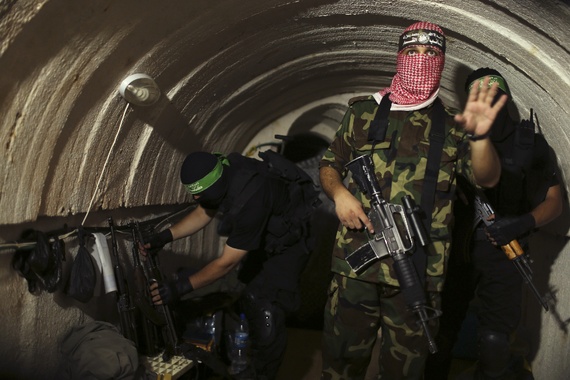
In previous rounds of Gaza fighting, Hamas learned that international coverage from the territory could be molded to its needs, a lesson it would implement in this summer’s war. Most of the press work in Gaza is done by local fixers, translators, and reporters, people who would understandably not dare cross Hamas, making it only rarely necessary for the group to threaten a Westerner. The organization’s armed forces could be made to disappear. The press could be trusted to play its role in the Hamas script, instead of reporting that there was such a script. Hamas strategy did not exist, according to Hamas—or, as reporters would say, was “not the story.” There was no Hamas charter blaming Jews for centuries of perfidy, or calling for their murder; this was not the story. The rockets falling on Israeli cities were quite harmless; they were not the story either.
Hamas understood that journalists would not only accept as fact the Hamas-reported civilian death toll—relayed through the UN or through something called the “Gaza Health Ministry,” an office controlled by Hamas—but would make those numbers the center of coverage. Hamas understood that reporters could be intimidated when necessary and that they would not report the intimidation; Western news organizations tend to see no ethical imperative to inform readers of the restrictions shaping their coverage in repressive states or other dangerous areas. In the war’s aftermath, the NGO-UN-media alliance could be depended upon to unleash the organs of the international community on Israel, and to leave the jihadist group alone.
When Hamas’s leaders surveyed their assets before this summer’s round of fighting, they knew that among those assets was the international press. The AP staff in Gaza City would witness a rocket launch right beside their office, endangering reporters and other civilians nearby—and the AP wouldn’t report it, not even in AP articles about Israeli claims that Hamas was launching rockets from residential areas. (This happened.) Hamas fighters would burst into the AP’s Gaza bureau and threaten the staff—and the AP wouldn’t report it. (This also happened.) Cameramen waiting outside Shifa Hospital in Gaza City would film the arrival of civilian casualties and then, at a signal from an official, turn off their cameras when wounded and dead fighters came in, helping Hamas maintain the illusion that only civilians were dying. (This too happened; the information comes from multiple sources with firsthand knowledge of these incidents.)
Colford, the AP spokesman, confirmed that armed militants entered the AP’s Gaza office in the early days of the war to complain about a photo showing the location of a rocket launch, though he said that Hamas claimed that the men “did not represent the group.” The AP “does not report many interactions with militias, armies, thugs or governments,” he wrote. “These incidents are part of the challenge of getting out the news—and not themselves news.”
This summer, with Yazidis, Christians, and Kurds falling back before the forces of radical Islam not far away from here, this ideology’s local franchise launched its latest war against the last thriving minority in the Middle East. The Western press corps showed up en masse to cover it. This conflict included rocket barrages across Israel and was deliberately fought from behind Palestinian civilians, many of whom died as a result. Dulled by years of the “Israel story” and inured to its routine omissions, confused about the role they are meant to play, and co-opted by Hamas, reporters described this war as an Israeli onslaught against innocent people. By doing so, this group of intelligent and generally well-meaning professionals ceased to be reliable observers and became instead an amplifier for the propaganda of one of the most intolerant and aggressive forces on earth.
And that, as they say, is the story.
Labels: Bias, Israel, News Media
